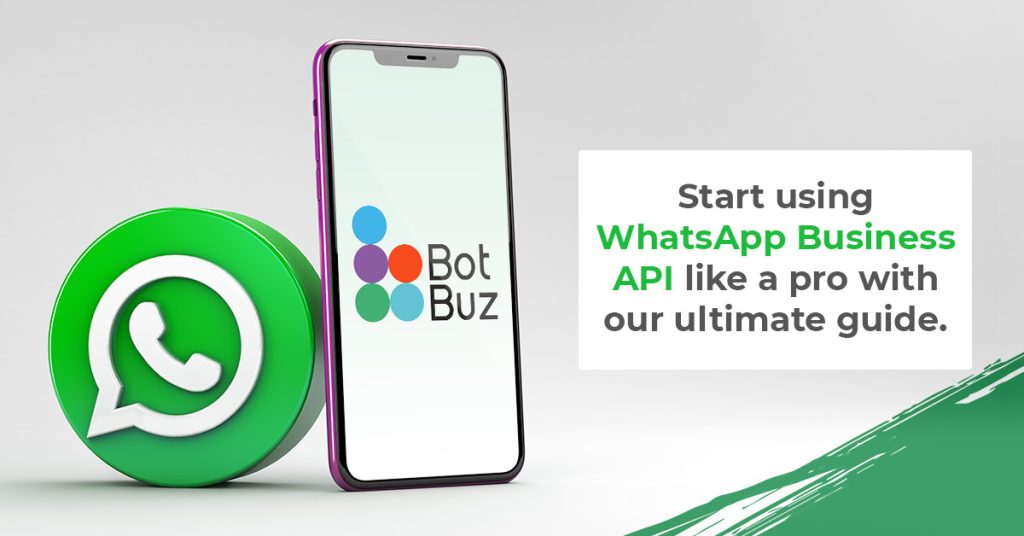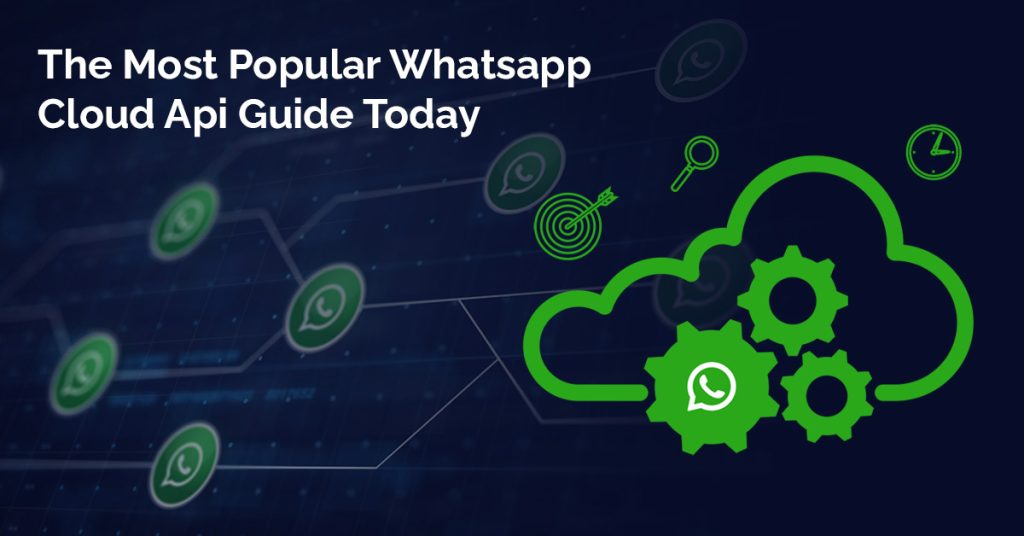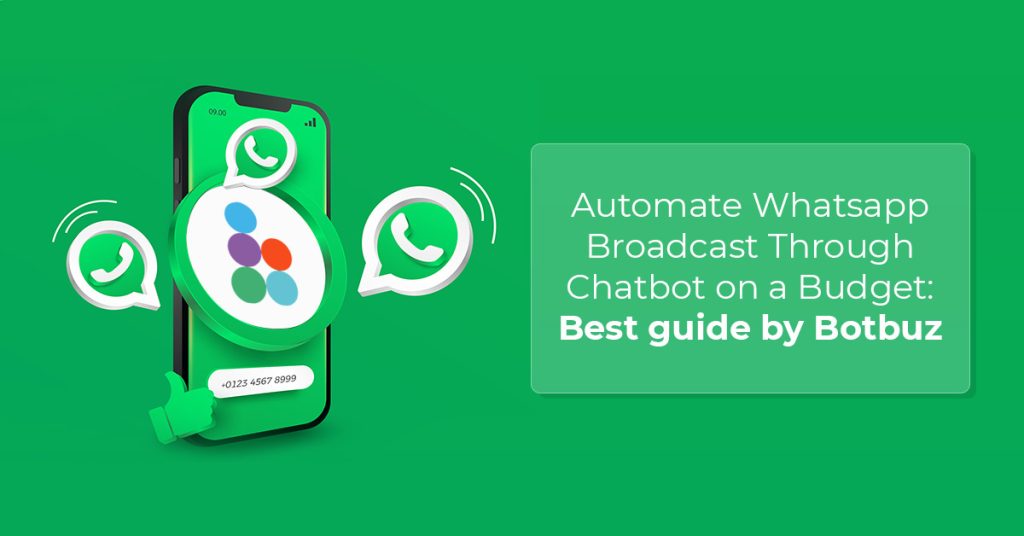- Importance of Integrating CRM with WhatsApp in 2025 :
- Bridging Customer Communication and Customer Relationship Management :
- Why Does Your Business Need WhatsApp CRM ?
- Key Features of a Powerful WhatsApp CRM :
- How WhatsApp CRM Improves Sales, Support & Marketing ?
- How to Integrate WhatsApp with Your CRM ?
- Advanced WhatsApp CRM Strategies :
- Simplify Customer Management with Botbuz Built-In CRM :
Importance of Integrating CRM with WhatsApp in 2025 :
WhatsApp has evolved from a simple messaging app to a vital business tool. It is especially with WhatsApp Business. The API allows features like automated messages and rich media sharing. Integrating WhatsApp with a CRM system is crucial. It centralizes customer data, enabling personalized engagement & automating workflows. Thus, improving sales and support efficiency.
This integration also provides valuable analytics, supports omnichannel communication, and can be cost-effective. By 2025, this combined approach will be essential for businesses to meet customer expectations for real-time & personalized support. It leverages AI & increases customer lifetime value. Thus, maintain a competitive edge as conversational commerce expands.
Bridging Customer Communication and Customer Relationship Management :
WhatsApp CRM involves connecting WhatsApp. It is specifically its business version, with a Customer Relationship Management (CRM) system. It allows businesses to manage all their customer interactions and relationships. It is directly through WhatsApp while using the CRM to organize data. This integration centralizes all WhatsApp conversations and customer details. Thus, making communication more structured and efficient.
The difference from a traditional CRM is key. A traditional CRM focuses on managing interactions via email or phone. A WhatsApp-integrated CRM, however, brings direct, real-time WhatsApp conversations into the CRM. It doesn’t replace the CRM but enhances it by incorporating the immediacy of messaging. Thus, providing a complete picture of customer interactions that traditional systems typically lack.
This integration effectively bridges customer communication and relationship management. It provides immediate context for every interaction, as all WhatsApp messages are logged in the CRM against the customer’s profile. This means teams always have access to the full customer history. It enables personalized communication at scale by using CRM data to tailor WhatsApp messages & offers. Thus, making interactions more relevant and impactful.
It allows for automated and efficient workflows. CRM triggers can automate WhatsApp messages for things like abandoned carts. It streamlines operations and ensures prompt responses. This integration creates a unified view of the customer journey across all communication channels. It consolidates interactions from the website, email, and WhatsApp into one place. Thus, helping in building stronger customer relationships.
Why Does Your Business Need WhatsApp CRM ?
Integrating WhatsApp with a CRM system is essential. Businesses integrate it due to several key advantages.
It centralizes all customer communication. Instead of scattered chats, every WhatsApp interaction is logged in the CRM. It gives all team members a complete history of customer engagement. This eliminates information silos and ensures consistent communication.
It significantly improves customer response times and overall engagement. By managing inquiries directly from the CRM, businesses can reply faster. Automated messages and quick replies ensure immediate feedback. It leads to higher customer satisfaction and trust.
The integration enables personalized interactions on a large scale. Use the rich customer data within the CRM. It helps businesses to tailor WhatsApp messages to individual needs, past purchases, or their stage in the sales process. This creates a deeper, more relevant connection with customers.
It boosts the efficiency of lead nurturing and customer support. Sales teams can track leads and share information. It is directly via WhatsApp, with all activities recorded. Support agents gain instant access to customer data for quicker problem-solving. Automated messages can also be used for reminders and updates.
It offers better tracking and analytics. Businesses can monitor important metrics like message open rates and campaign effectiveness. It is directly from the CRM. This data provides insights into customer behavior. Thus, allowing for data-driven decisions to optimize communication strategies and improve business outcomes.
Key Features of a Powerful WhatsApp CRM :
To use WhatsApp for customer relationships, a strong WhatsApp CRM needs specific features.
It requires excellent contact management and customer segmentation. This means more than just storing numbers. It involves detailed customer profiles and the ability to group contacts. It is on the basis of factors like demographics or past behavior. This allows businesses to send highly targeted & relevant messages to different customer segments.
Automated messaging and workflows are crucial. The CRM should allow businesses to set up automatic replies for common questions. It welcomes new contacts, or sends away messages. More advanced workflows can trigger message sequences based on customer actions, like sending a reminder for an abandoned shopping cart. This saves time and ensures consistent communication.
A powerful WhatsApp CRM needs integration with other platforms. It easily connects with e-commerce sites like Shopify & customer support tools like Zendesk. This ensures that data flows smoothly between systems. Thus, allowing for things like automated order confirmations via WhatsApp or updated support ticket statuses directly from a chat.
Strong analytics and performance tracking are essential. The CRM should provide insights into WhatsApp communication efforts. It shows metrics like message delivery rates, open rates, and even sales conversions. This data helps businesses understand what’s working and how to improve their strategies.
Multi-agent support with role-based access is vital for teams. The CRM should allow multiple team members to manage WhatsApp conversations from a single inbox. Role-based access ensures that different team members for e.g., sales, support have appropriate permissions. It maintains data security and organizes workflows for efficient collaboration.
How WhatsApp CRM Improves Sales, Support & Marketing ?
A WhatsApp CRM greatly improves how businesses handle sales, support, and marketing. It streamlines communication and uses customer data effectively.
For sales, it helps with lead qualification. It enables instant, real-time conversations with potential customers. Thus, allowing agents to quickly understand their needs. It also aids in nurturing leads through personalized follow-ups sent directly via WhatsApp. This immediate interaction helps sales teams close deals more efficiently in real-time.
In customer support, the system allows for instant query resolution. Customers can quickly get answers through a familiar channel. Support agents have full access to customer history via the CRM. It speeds up problem-solving. It also facilitates customer satisfaction tracking through post-interaction surveys. Thus, helping businesses continuously improve service quality.
For marketing, a WhatsApp CRM enables sending broadcast messages to specific customer groups, like announcing new products. More importantly, it supports highly personalized campaigns. Also promotions tailored to individual customer preferences, directly delivered via WhatsApp. This direct and interactive approach boosts engagement and conversions for marketing initiatives.
How to Integrate WhatsApp with Your CRM ?
Integrating WhatsApp with a CRM system can transform how a business communicates with its customers. It’s a precise process that, when done right, improves communication and customer satisfaction.
The first crucial step is to choose the right CRM software. A business needs a CRM that is API-ready for easy connection with WhatsApp. It has strong automation tools, and is compatible with chatbots. Popular choices often include platforms like HubSpot or Salesforce due to their integration capabilities.
Next, the business must sign up for the WhatsApp Business API. This involves a verification process of the business’s identity. To access the API, a business partners with a WhatsApp Business Solution Provider (BSP). Botbuz, helps with the technical setup and ensures compliance.
After getting API access, the business proceeds to integrate WhatsApp with its CRM. This can be done through native integration if the CRM offers it, by using third-party tools like Zapier to connect the two, or through custom development for unique needs.
Once integrated, the next step is to automate WhatsApp workflows. Businesses can set up auto-replies for common questions. It can create drip campaigns for lead nurturing, and design lead qualification flows. Automation can also link to CRM actions. It includes creating a support ticket or updating a deal stage based on a WhatsApp chat.
Finally, it’s vital to train the team. Employees need to learn how to use the CRM dashboard for managing WhatsApp chats. It understands automation features, and follows template and tone guidelines. Regularly monitoring performance metrics within the CRM helps the team. It continuously refined their WhatsApp communication strategy.
Advanced WhatsApp CRM Strategies :
Advanced WhatsApp CRM strategies focus on highly targeted and automated customer interactions. This includes precise customer segmentation & targeting to send relevant messages to specific groups. Building on this, personalized messaging & campaigns use CRM data to create one-on-one interactions. It means addressing customers by name or suggesting relevant products.
Businesses also implement automated sales and support workflows. CRM data or customer actions trigger automated messages for lead nurturing, follow-ups, or support ticket updates. A key strategy is behavior-based engagement. It sends messages based on actions like cart abandonment or brochure downloads. Thus, capitalizing crucial moments.
Finally, using chatbots for 24/7 interaction provides instant support. It answers FAQs, and pre-qualifies leads. Thus, ensuring continuous customer engagement and freeing human agents for complex tasks.
Simplify Customer Management with Botbuz Built-In CRM :
Botbuz Built-In CRM is an all-in-one solution. It simplifies customer management, primarily through WhatsApp and other platforms. It offers multi-channel communication, automation for chatbots and campaigns, and lead tracking. A key benefit is its easy setup with the WhatsApp Business API. Businesses use Botbuz to manage conversations efficiently. It automates tasks like order updates, qualify leads, and send personalized promotions. Thus, increasing conversions.
Conclusion :
In 2025, WhatsApp is central to business communication. It is especially in India, making its integration with CRM essential. WhatsApp CRM combines WhatsApp’s reach with CRM’s data and automation. It boosts sales, support, and marketing efficiency through personalized, real-time interactions.
For businesses looking to implement this, Botbuz CRM offers an all-in-one solution. It simplifies API integration & provides key features like contact management, automation, analytics & multi-agent support. Mastering WhatsApp CRM with tools like Botbuz is crucial for enhancing customer engagement. It drives conversions, and ensures business success in the current digital landscape.




